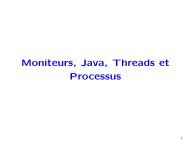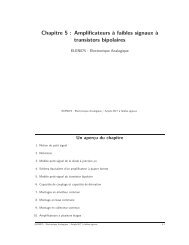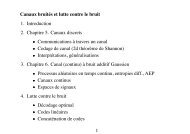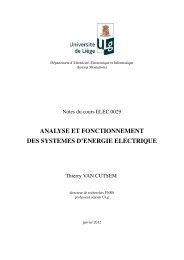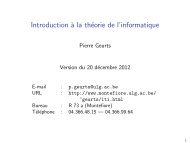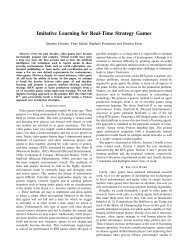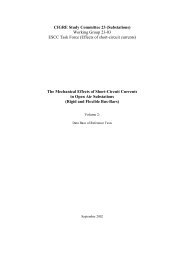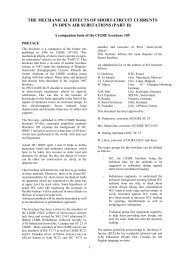Session 1 - Montefiore
Session 1 - Montefiore
Session 1 - Montefiore
Create successful ePaper yourself
Turn your PDF publications into a flip-book with our unique Google optimized e-Paper software.
eceived for exported electricity would have to offset energy, distribution, peak demand, taxes,<br />
and metering charges for both electricity and gas use.<br />
The ZEB Definition Selected Can Have an Impact on Future ZEB Designs<br />
The zero energy definition affects how buildings are designed to achieve the goal. It can<br />
emphasize energy efficiency, supply-side strategies, purchased energy sources, utility rate<br />
structures, or whether fuel-switching and conversion accounting can help meet the goal. Table 3<br />
highlights key characteristics of each definition.<br />
Definition<br />
Site<br />
ZEB<br />
Source<br />
ZEB<br />
Cost<br />
ZEB<br />
Emissions<br />
ZEB<br />
Table 3. ZEB Definitions Summary<br />
Pluses Minuses Other Issues<br />
• Easy to implement.<br />
• Verifiable through on-site measurements.<br />
• Conservative approach to achieving ZEB.<br />
• No externalities affect performance, can<br />
track success over time.<br />
• Easy for the building community to<br />
understand and communicate.<br />
• Encourages energy-efficient building<br />
designs.<br />
• Able to equate energy value of fuel types<br />
used at the site.<br />
• Better model for impact on national<br />
energy system.<br />
• Easier ZEB to reach.<br />
• Easy to implement and measure.<br />
• Market forces result in a good balance<br />
between fuel types.<br />
• Allows for demand-responsive control.<br />
• Verifiable from utility bills.<br />
• Better model for green power.<br />
• Accounts for nonenergy differences<br />
between fuel types (pollution, greenhouse<br />
gases).<br />
• Easier ZEB to reach.<br />
• Requires more PV export to offset<br />
natural gas.<br />
• Does not consider all utility costs (can<br />
have a low load factor).<br />
• Not able to equate fuel types.<br />
• Does not account for nonenergy<br />
differences between fuel types (supply<br />
availability, pollution).<br />
• Does not account for nonenergy<br />
differences between fuel types (supply<br />
availability, pollution).<br />
• Source calculations too broad (do not<br />
account for regional or daily variations<br />
in electricity generation heat rates).<br />
• Source energy use accounting and fuel<br />
switching can have a larger impact than<br />
efficiency technologies.<br />
• Does not consider all energy costs (can<br />
have a low load factor).<br />
• May not reflect impact to national grid<br />
for demand, as extra PV generation can<br />
be more valuable for reducing demand<br />
with on-site storage than exporting to<br />
the grid.<br />
• Requires net-metering agreements such<br />
that exported electricity can offset<br />
energy and nonenergy charges.<br />
• Highly volatile energy rates make for<br />
difficult tracking over time.<br />
11<br />
• Need to develop siteto-source<br />
conversion<br />
factors, which<br />
require significant<br />
amounts of<br />
information to<br />
define.<br />
• Offsetting monthly<br />
service and<br />
infrastructure charges<br />
require going beyond<br />
ZEB.<br />
• Net metering is not<br />
well established,<br />
often with capacity<br />
limits and at buyback<br />
rates lower than retail<br />
rates.<br />
• Need appropriate<br />
emission factors.<br />
A source ZEB definition can emphasize gas end uses over the electric counterparts to<br />
take advantage of fuel switching and source accounting to reach a source ZEB goal. Conversely,<br />
a site ZEB can emphasize electric heat pumps for heating end uses over the gas counterpart. For<br />
a cost ZEB, demand management and on-site energy storage are important design considerations,



